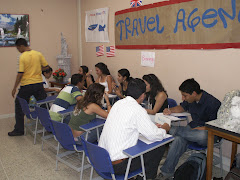Present Perfect Simple
Video about Present Perfect Simple
Video about Present Perfect Simple
The present perfect simple expresses an action that is still going on or that stopped recently, but has an influence on the present. It puts emphasis on the result.
We use the Present Perfect to say that an action happened at an unspecified time before now. The exact time is not important.
You CANNOT use the Present Perfect with specific time expressions such as: yesterday, one year ago, last week, when I was a child, when I lived in Japan, at that moment, that day, one day, etc. We CAN use the Present Perfect with unspecific expressions such as: ever, never, once, many times, several times, before, so far, already, yet, etc.
Examples:
- I have seen that movie twenty times.
- I think I have met him once before.
- There have been many earthquakes in California.
- People have traveled to the Moon.
- People have not traveled to Mars.
- Have you read the book yet?
- Nobody has ever climbed that mountain.
- A: Has there ever been a war in the United States?
B: Yes, there has been a war in the United States
1. You can use the Present Perfect to describe your experience. It is like saying, "I have the experience of..." You can also use this tense to say that you have never had a certain experience. The Present Perfect is NOT used to describe a specific event.
2. We often use the Present Perfect to talk about change that has happened over a period of time.
3. We often use the Present Perfect to list the accomplishments of individuals and humanity. You cannot mention a specific time.
4. We often use the Present Perfect to say that an action which we expected has not happened. Using the Present Perfect suggests that we are still waiting for the action to happen.
5. We also use the Present Perfect to talk about several different actions which have occurred in the past at different times. Present Perfect suggests the process is not complete and more actions are possible.



No comments:
Post a Comment